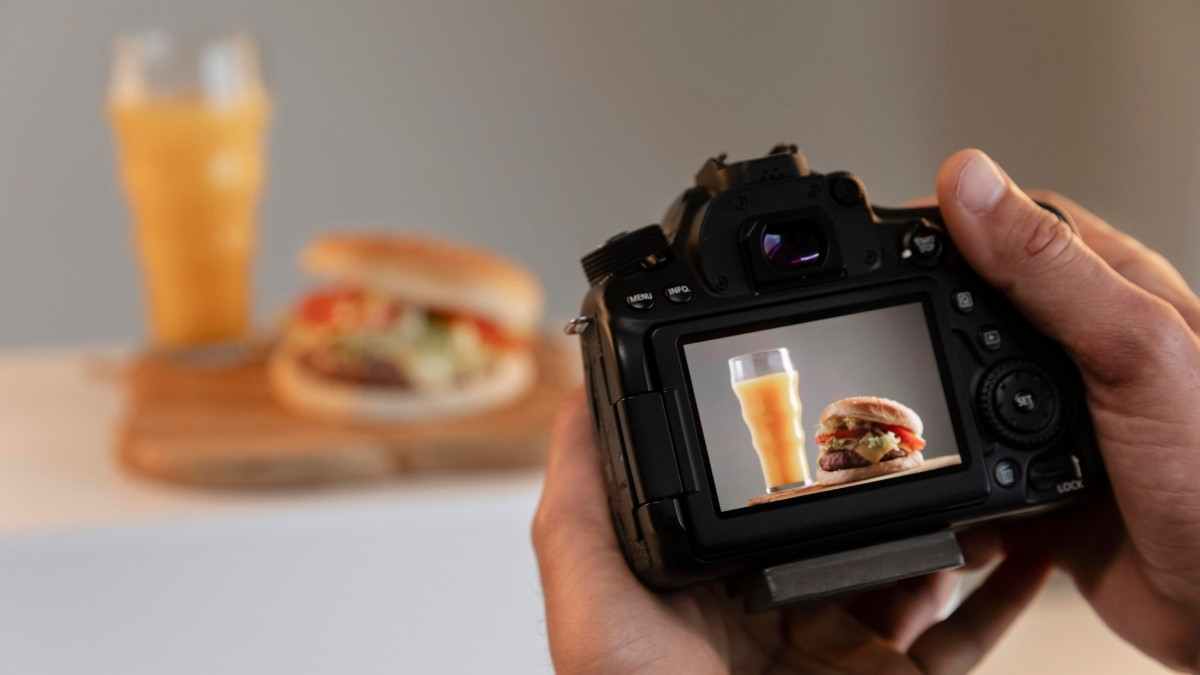
You have hundreds of photos on your phone. Maybe thousands on your computer. But they’re just sitting there, doing nothing.
What if those photos could pay your bills? What if your hobby could become a real income?
Here’s the truth: photographers are earning a substantial income online right now. Some earn $500 a month. Others hit $7,000 or more. The difference isn’t luck. It’s knowing where to sell.
This guide shows you 15 websites that pay for photos. No fake promises. No get-rich-quick schemes. Just real platforms where real photographers make real money.
But let’s be clear about something. Making $7,000 a month isn’t easy. You won’t get there with one website. You need multiple income streams. You need good photos. And you need to treat this like a business, not a hobby.
Ready to turn your photos into cash? Let’s start.
1. Shutterstock – The Biggest Player in Stock Photography
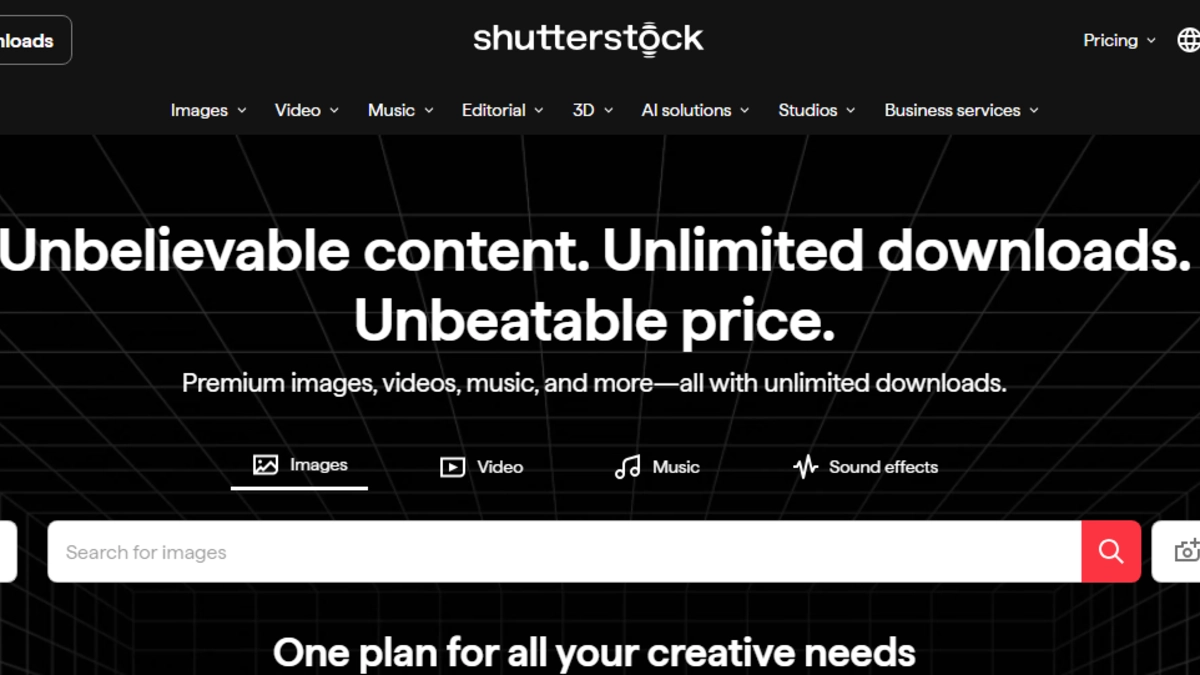
Shutterstock is huge. We’re talking 750 million photos, huge. If you want volume sales, this is your starting point.
Here’s how it works. You upload photos. People buy them. You get paid each time someone downloads your image.
Earning Structure:
- New contributors: $0.10 per download
- Regular contributors: $0.25-$0.38 per download
- Top performers: Up to $120 per download
- Payment increases as your lifetime earnings grow
What Sells Best:
- Business photos (meetings, handshakes, office work)
- Lifestyle images (families, exercise, cooking)
- Technology and modern workplace scenes
- Diverse people in authentic situations
Requirements:
- Sharp, well-lit photos only
- Professional technical quality
- Commercial appeal over artistic expression
- Proper model releases for people
The competition is fierce. Millions of photographers upload here. But that also means millions of buyers shop here. If your photos stand out, you’ll make sales.
2. Adobe Stock – Direct Access to Creative Professionals

Adobe Stock has one big advantage. It’s built right into Photoshop, Illustrator, and other Adobe programs. When designers need photos, they often grab them straight from Adobe Stock.
Why Adobe Stock Works:
- 33% commission on every sale (flat rate)
- No complex tier systems to figure out
- Professional designers and agencies are buyers
- Fast approval process (24-48 hours)
Best Photo Types:
- Business and technology content
- Clean, modern lifestyle images
- Photos that look corporate brochure-ready
- Authentic moments over staged poses
Key Advantage: The buyers are professional designers with budgets. They know what they want and they’re willing to pay for quality work that fits their projects.
3. Alamy – Higher Payouts for Unique Content
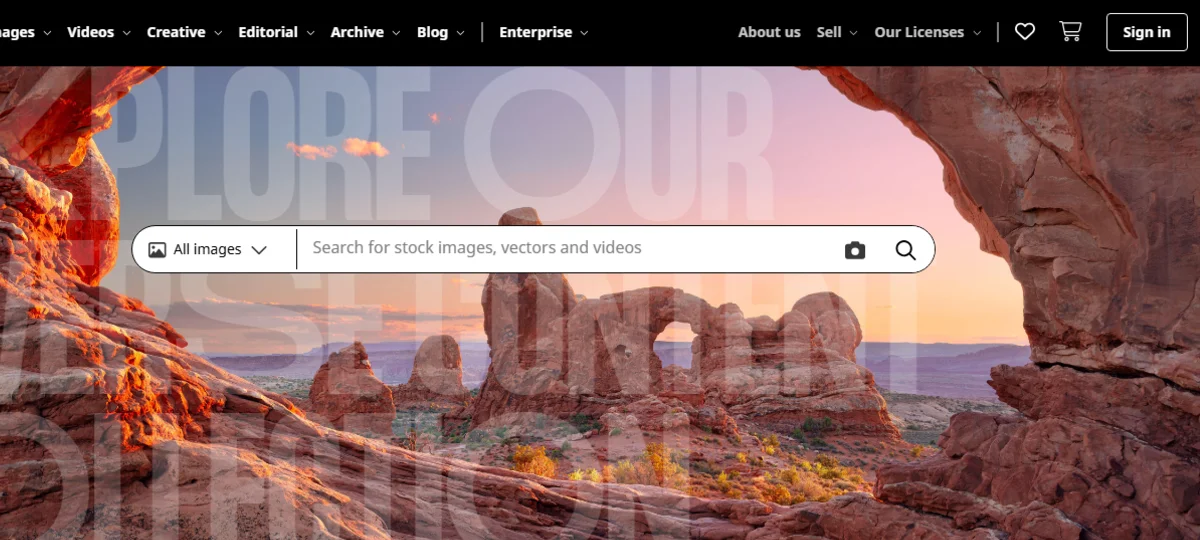
Most stock sites pay 15% to 30%. Alamy pays 50%. That’s double what you’ll get elsewhere.
The Trade-off:
- Higher commission rate (50%)
- Fewer total sales compared to volume sites
- Focus on unique, editorial content
- Sales worth $50-$100 instead of $0.25
What Alamy Wants:
- Travel photography from unique locations
- News and documentary-style images
- Local events and cultural moments
- Street photography and real-life scenes
- Content that tells specific stories
Best For:
- Travel photographers
- Documentary photographers
- Anyone with unique local content
- Photographers who prefer quality over quantity
Alamy accepts more diverse content than other platforms. They want the weird street art, local festivals, and unusual shots that mainstream sites might reject.
4. Getty Images – The Premium Stock Photography Platform
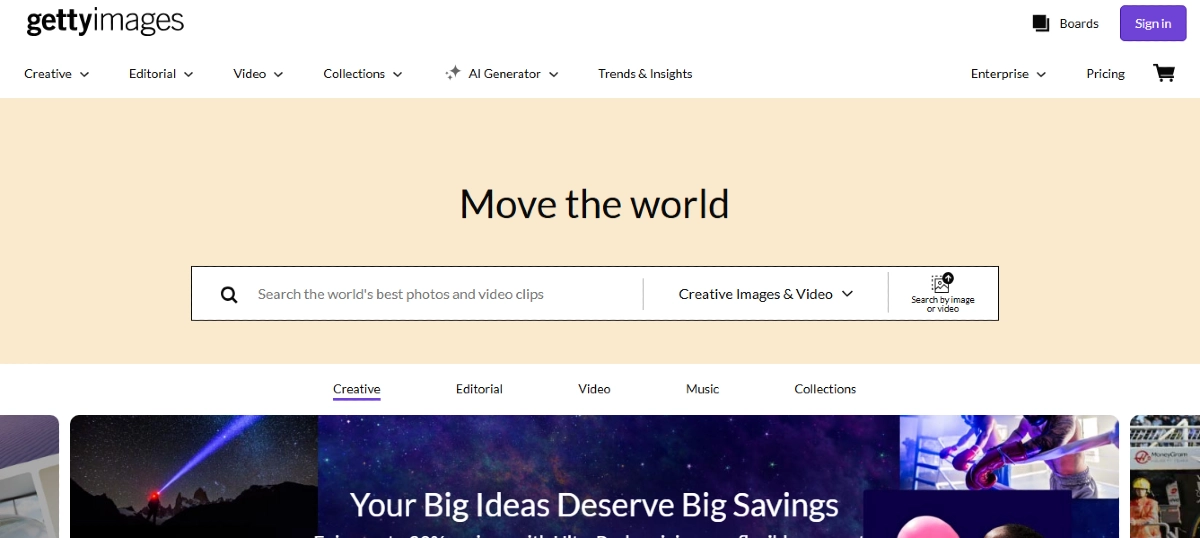
Getty Images is at the top of the food chain. Getting accepted isn’t easy. But if you make it, the payouts can be huge.
The Reality:
- Invitation-only contributor program
- Extremely high-quality standards required
- Sales range from $50 to several thousand dollars
- Major magazines and corporations shop here
How to Get In:
- Apply with an exceptional portfolio
- Get scouted from other platforms
- Win photography competitions
- Already an established professional
What They Want:
- Perfect technical quality
- Compelling, newsworthy subjects
- Commercial appeal for major brands
- Editorial content for media outlets
If you think your work is Getty-level, apply. The worst they can say is no. The best case? You join photographers earning serious money from single images.
5. iStock by Getty Images – The Stepping Stone to Success
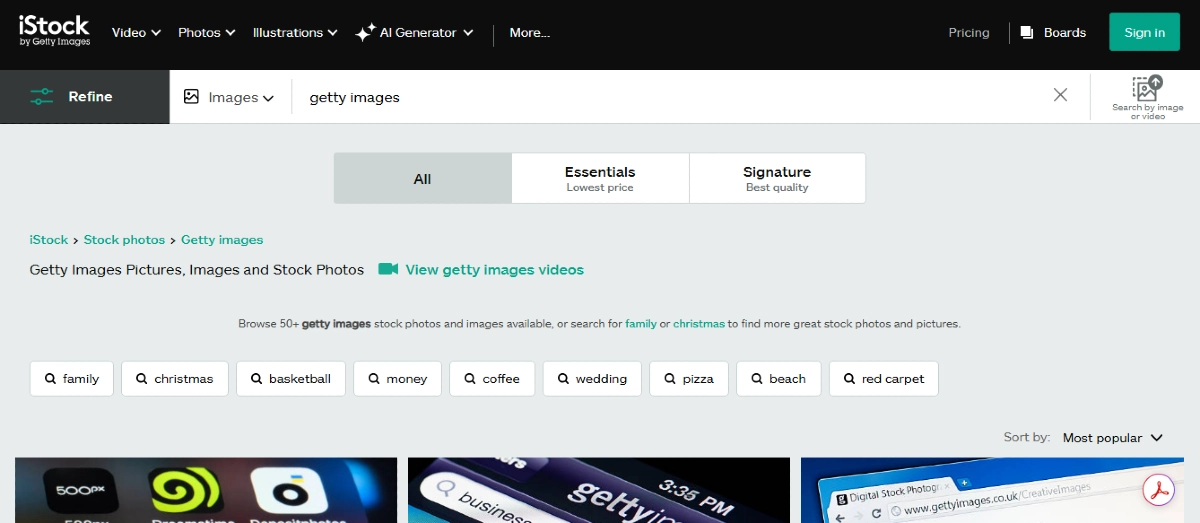
iStock is Getty’s more accessible platform. The quality standards are high but not impossible.
Commission Structure:
- Non-exclusive contributors: 15-25%
- Exclusive contributors: 25-45%
- Higher rates if you only sell here
- Good training ground for the Getty main platform
What Performs Well:
- Business and technology photos
- Diverse people in modern settings
- Remote work and healthy living themes
- Complete photo sets from single shoots
Smart Strategy: Many photographers use iStock as practice. Build your skills here. Learn what sells. Maybe Getty will notice your work and send an invitation.
Pro Tip: iStock buyers often purchase entire sets. Upload 10 photos from the same shoot, and one sale often leads to several more.
6. Fine Art America – Set Your Own Prices

Forget royalties and commissions for a minute. What if you could set your prices?
How It Works:
- Upload your photos or art
- Set your markup above printing costs
- They handle printing, shipping, and customer service
- You keep the profit margin you set
Product Options:
- Wall art and canvas prints
- Greeting cards and stationery
- Phone cases and tech accessories
- Clothing and home decor
- Even shower curtains and furniture
What Sells:
- Landscape and nature photography
- Abstract and artistic images
- Local landmarks and cityscapes
- Pet portraits and animal photos
- Inspirational quotes on backgrounds
The Challenge: You need to market yourself. Fine Art America won’t automatically drive traffic to your store. Success requires social media promotion, local networking, or existing customer relationships.
7. Society6 – Trendy Products for Young Buyers
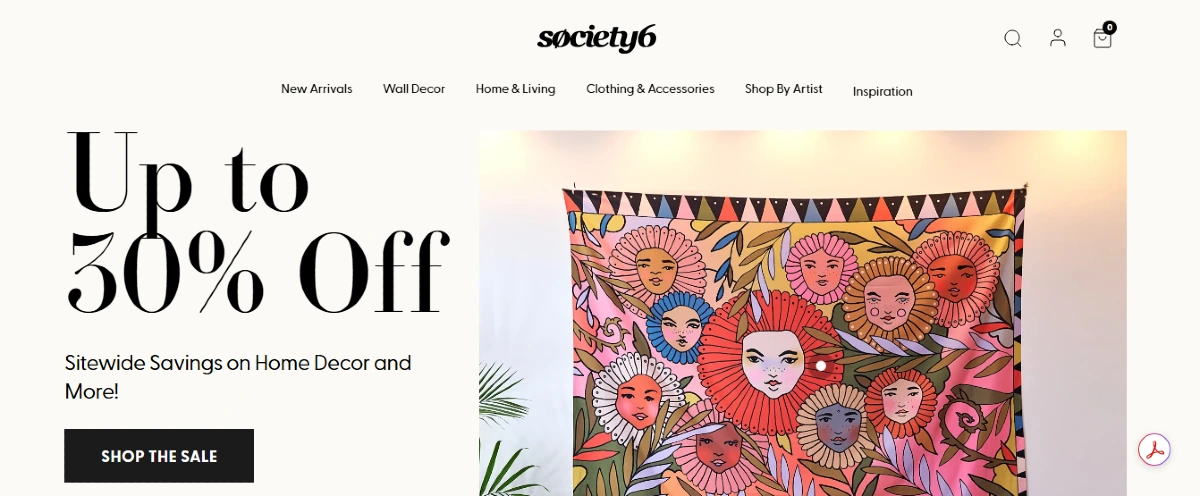
Society6 focuses on trendy, design-forward products. Think millennials and Gen Z buying cool stuff for their apartments.
Product Range:
- Duvet covers and pillows
- Laptop skins and phone cases
- Travel mugs and water bottles
- Tote bags and backpacks
- Wall tapestries and art prints
Earning Potential:
- 5-15% royalties depending on product
- Higher sale prices mean bigger payouts
- $100 duvet cover = $10-15 for you
- Built-in social features for promotion
What Works Here:
- Bold, graphic images that pop
- Patterns that work well on products
- Aesthetic photos perfect for Instagram
- Pop culture and trending references
Success Strategy: Think about how your photo will look on products. A mountain landscape might work great on a wall tapestry, but terrible on a phone case.
8. SmugMug – Professional Galleries with Print Sales
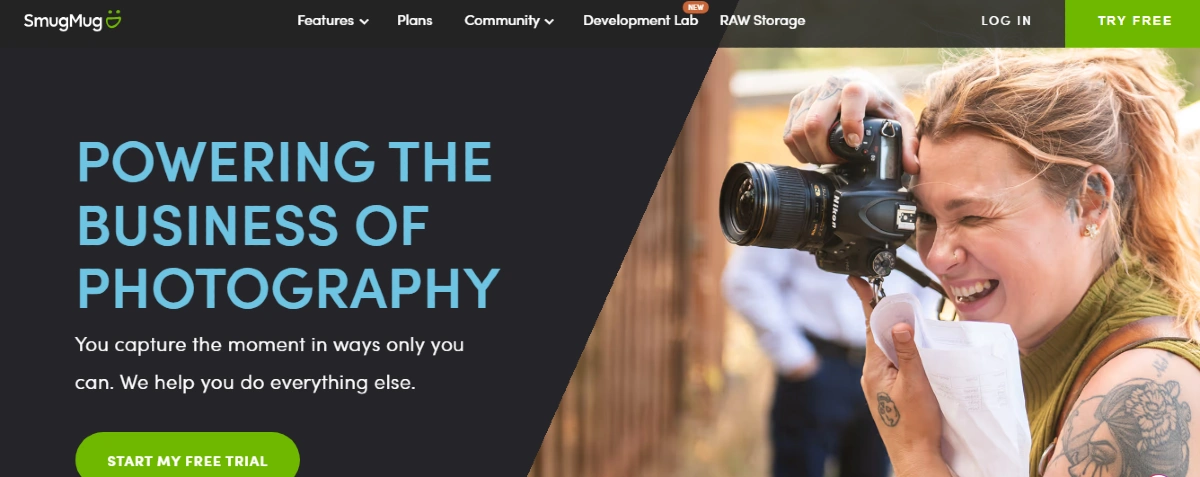
SmugMug is different. Instead of uploading to someone else’s marketplace, you build your professional photography website.
What You Get:
- Professional photo galleries
- Client proofing and ordering system
- High-quality print fulfillment
- Complete e-commerce tools
- Your own branded website
How You Earn:
- Set print prices above SmugMug’s cost
- Keep the entire markup as profit
- Build direct customer relationships
- No commission splits with other photographers
Best For:
- Wedding and portrait photographers
- Landscape photographers selling prints
- Any photographer wanting their brand
- Professionals who can drive their traffic
Investment: Plans start around $75/year for professional features. Serious photographers often earn that back from a single print order.
9. Fiverr – Sell Photography Services, Not Just Photos
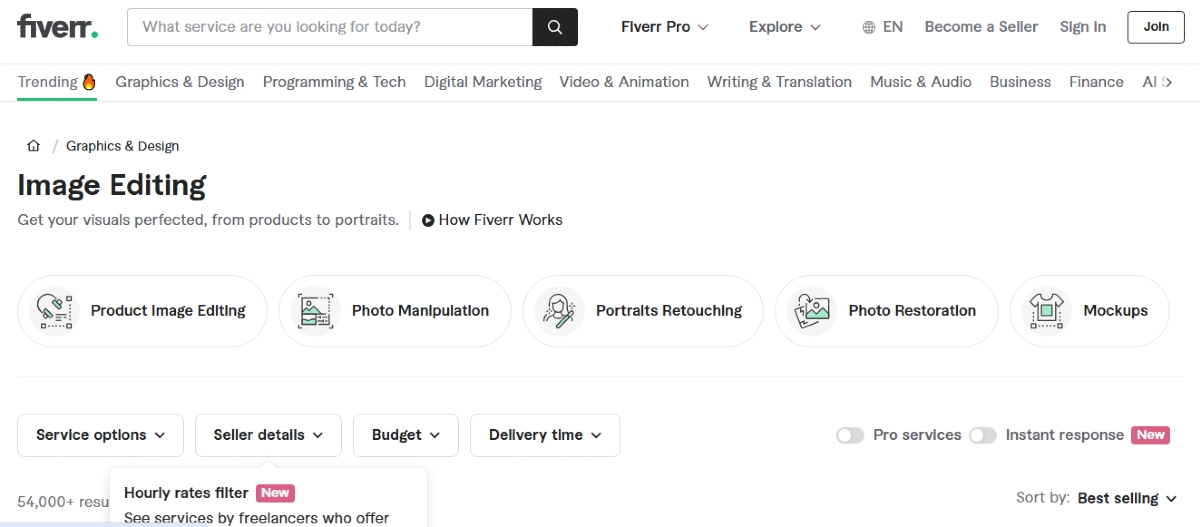
What if instead of selling photos, you sold photography skills?
Popular Photography Gigs:
- Photo editing and retouching ($25-100)
- Background removal ($10-50)
- Real estate photo editing ($50-200)
- Social media content creation ($25-150)
- Custom portrait sessions ($100-500)
How Fiverr Works:
- Create “gigs” offering specific services
- Set your prices
- Fiverr takes 20% of each sale
- Build reviews to charge higher rates
Success Strategy:
- Start with competitive pricing
- Deliver work faster than promised
- Communicate clearly with buyers
- Gradually increase prices as reviews grow
Advantage Over Stock Photography: You build relationships with repeat customers instead of anonymous one-time sales.
10. Upwork – Professional Photography Contracts

Upwork is where businesses find professional freelancers. Photography projects range from $50 editing jobs to $5,000 marketing campaigns.
Types of Projects:
- Real estate photography ($200-500 per session)
- Product photography for e-commerce
- Corporate headshots and events
- Social media content creation
- Marketing campaign photography
Fee Structure:
- 10% fee on the first $500 with each client
- 5% fee after $500 lifetime with client
- High earners barely notice the fees
Building Success:
- Create a professional profile with a portfolio
- Specialize in profitable niches
- Position yourself as an expert, not a hobbyist
- Build long-term client relationships
Key Insight: Businesses have budgets and value expertise. They’ll pay $500 for a half-day real estate shoot that a hobbyist might do for $50.
11. Foap – Mobile Photography with Brand Missions

Foap started as an Instagram for photographers but evolved into something more interesting. Brands post “missions” asking for specific photos.
Mission Examples:
- “Show us people working from home.”
- “Capture summer vacation moments”
- “Document urban transportation”
- Prize money: $100-500+ per winning entry
Regular Sales:
- Individual photos sell for $5-10 each
- Mobile-first platform (smartphone photos work)
- Brands include Volvo, Mastercard, Nivea
- Focus on authentic, unstaged moments
Winning Strategies:
- Read mission requirements carefully
- Submit multiple angles of the same concept
- Focus on emotion over technical perfection
- Use real people in real situations
Even without winning missions, regular sales provide a steady income. Many photographers earn $50-200 monthly just from normal photo sales.
12. 500px – Community-Driven Photography Marketplace
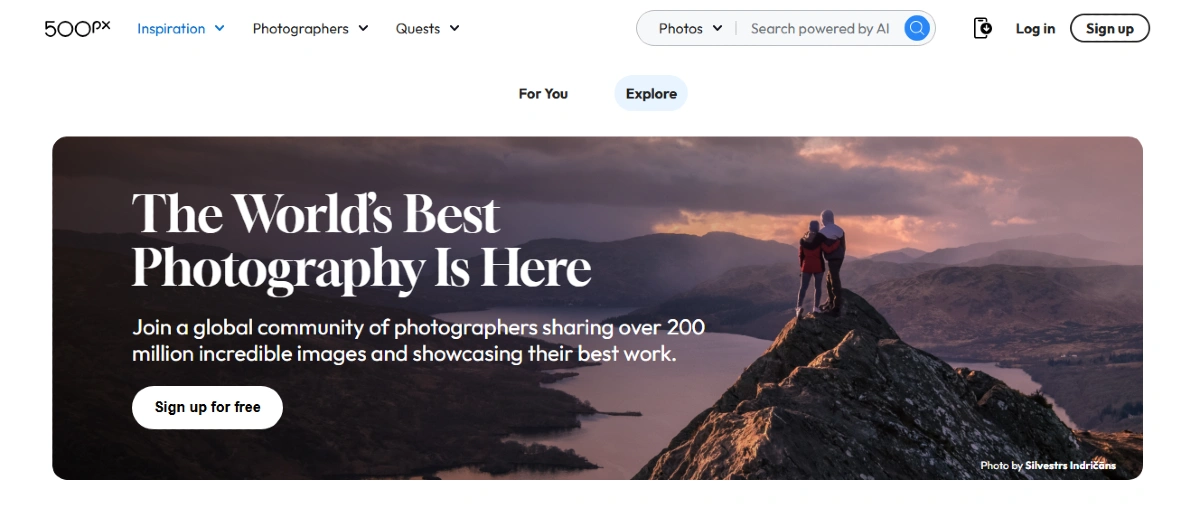
500px built a massive photography community first, then added ways to make money.
Revenue Opportunities:
- Photo licensing through brand partnerships
- Quest challenges with $500-2,000 prizes
- Up to 100% royalties for exclusive content
- 60% royalties for non-exclusive photos
What Makes It Different:
- Community engagement drives exposure
- Artistic photography over generic stock
- Popular photographers gain followers
- Success builds on social interaction
Recent Quest Topics:
- Travel photography
- Urban landscapes
- Portrait photography
- Street scenes and culture
Building Success: Engage with the community, participate in challenges, and consistently upload high-quality work. Popularity leads to licensing opportunities.
13. Wirestock – Distribute Photos to Multiple Sites at Once
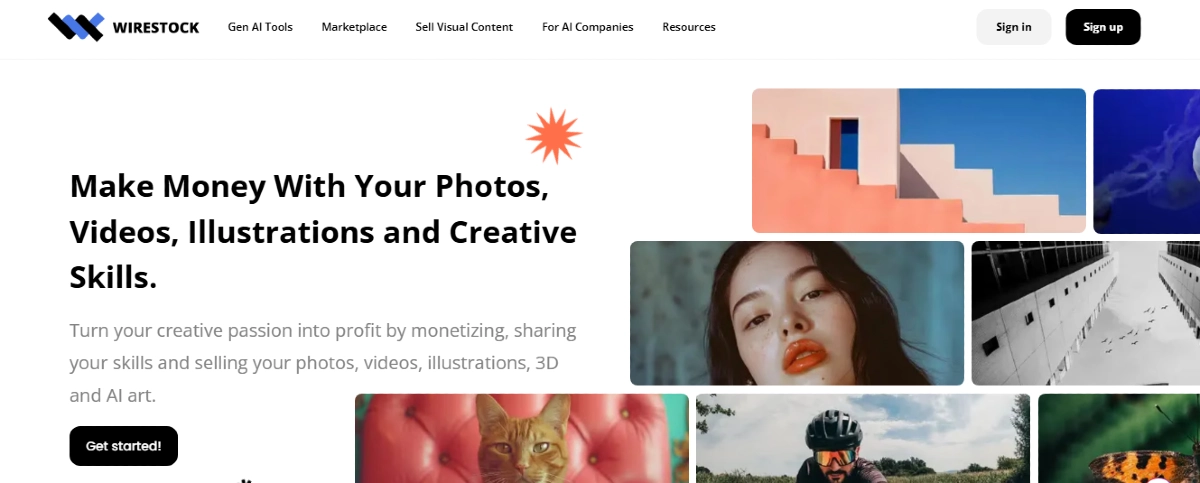
Here’s a time-saver that could boost your income significantly. Wirestock takes your photos and distributes them to multiple stock agencies automatically.
How It Works:
- Upload once to Wirestock
- They distribute to 20+ stock agencies
- Includes Shutterstock, Adobe, Alamy, and more
- AI-powered keywording assistance
The Trade-off:
- Wirestock takes 15% commission
- But saves hours of work per week
- Contributors report 30-50% income increases
- More time shooting instead of uploading
Why It’s Worth It: Most photographers don’t have time to manage multiple platforms. Wirestock handles the busy work so you can focus on creating photos.
Best For: Serious stock photographers managing large portfolios who want to maximize distribution without the time investment.
14. Dreamstime – Steady Income with Generous Royalties
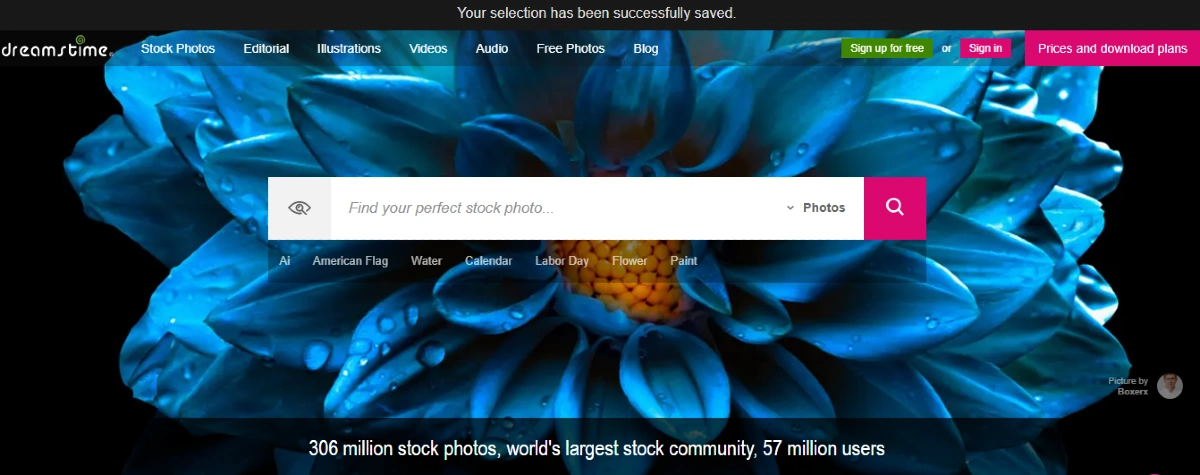
Dreamstime doesn’t get as much attention as bigger competitors. But their royalty structure is more generous.
Commission Structure:
- Base rates: 25-50% depending on level
- Exclusive contributors: Up to 60%
- Referral program adds extra income
- Less competition than major platforms
What Sells Well:
- Business and lifestyle content
- Seasonal and holiday themes
- Trending topics and current events
- Educational and informational images
Community Benefits:
- Photographers share tips and strategies
- Critique and feedback from peers
- Celebration of member successes
- Strong support for new contributors
Realistic Expectations: Most new contributors earn $50-200 monthly in their first year. Income grows with larger portfolios and a better understanding of buyer needs.
15. Stocksy – Artist-Owned Cooperative with Premium Payouts

Stocksy is exclusive. Exclusive. They accept only about 1% of applicants. But if you get in, the rewards are substantial.
Why It’s Special:
- 50-75% commission rates
- Annual profit sharing (you own part of the company)
- Sale prices 2-3x higher than traditional stock sites
- Hand-curated, premium content only
Application Requirements:
- Portfolio of 20-30 exceptional images
- Consistent quality and unique perspective
- Diverse subjects and authentic emotions
- Contemporary aesthetic over traditional stock
What They Want:
- Real moments, not staged perfection
- Diverse and inclusive representation
- Modern lifestyle photography
- Exceptional technical and creative quality
The Reality: Getting accepted is difficult. But members earn significantly more per photo than traditional stock sites. Quality over quantity approach.
Start Making Money from Your Photos Today

You have everything you need to start earning from photography. Here’s your action plan:
Week 1: Choose Your Platforms
- Pick 3 platforms from this list
- Create accounts and learn requirements
- Study successful photographers on each site
Week 2: Prepare Your Portfolio
- Select 20-30 of your best photos
- Edit for technical quality
- Research keywords for each image
Week 3: Start Uploading
- Upload 10 photos to each chosen platform
- Write compelling descriptions
- Tag with relevant keywords
Week 4: Track and Analyze
- Monitor which photos get views/sales
- Note patterns in successful images
- Plan your next batch of uploads
Don’t Overthink It: Perfect photos don’t exist. Good photos that solve problems and connect with people do sell.
Keep Creating: The photographers making $7,000 monthly didn’t get there by uploading 50 photos and waiting. They consistently create new content, learn from results, and adapt their strategy.
Your photos are worth money. Now you know exactly where to sell them.






